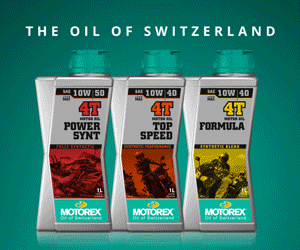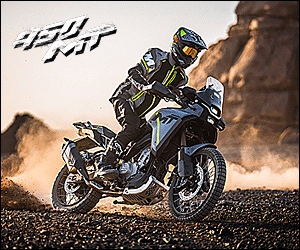Around the world with The Bear – Part Eight
The King of Every Kingdom – Around the world on a very small motorcycle
With J. Peter “The Bear” Thoeming
Last episode we discovered that the beer was warm as The Bear and Charlie explored Nepal before heading on into India – this week we find that the food is hot!
Having arrived in Varanasi last time, we now retreated to the Hotel KMM, which had been recommended to us, and drank several gallons of tea and fresh lemon drink. It all went straight out again, mostly through the pores, and it kept us awake and buzzing.
On an evening stroll through the crowds of holy men and peddlers we acquired a friend, an eight-year-old boy who wanted to sell us some silk. He tagged along down to the river and introduced us to his father, who had just had his evening dip in the holy river. We sat watching the sunset reflecting in the river as the father told us some stories about Varanasi and the Hindu gods.
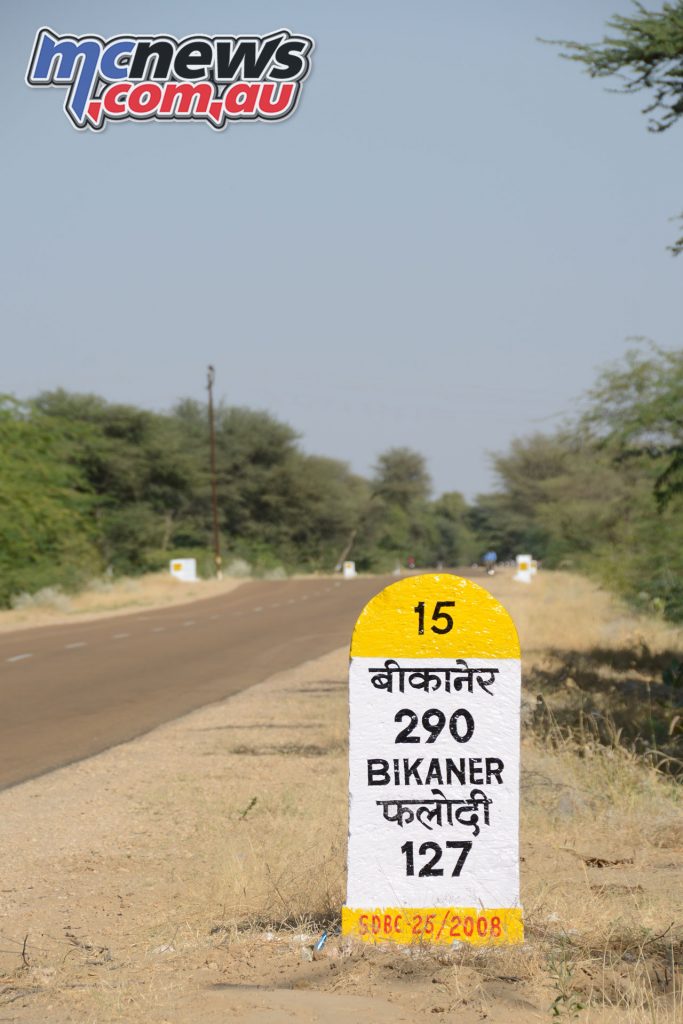
The next day was devoted to looking over such unique Varanasi attractions as the ghats on the riverbank, where corpses are burnt before being consigned to the sacred embrace of the river—a very quick look at that. Fighting off prospective guides took more time than anything else.
We returned to our little friend’s shop, in fact the family living-room and no doubt bedroom, and I bought some silk batik scarves for presents. They were beautiful, with motifs from Hindu mythology in rich colours. One hangs on my office wall to this day.
It seemed to us that the best way to deal with the heat was to get up early, do most of our riding in the cool of the morning and rest in the afternoon, and with that in mind we rose at 4am to discover that there was a blackout.
We loaded the bikes by the light of our torches. The electricity came back on at about the same time as the sun came up. This little scheme did work quite well after that, though.
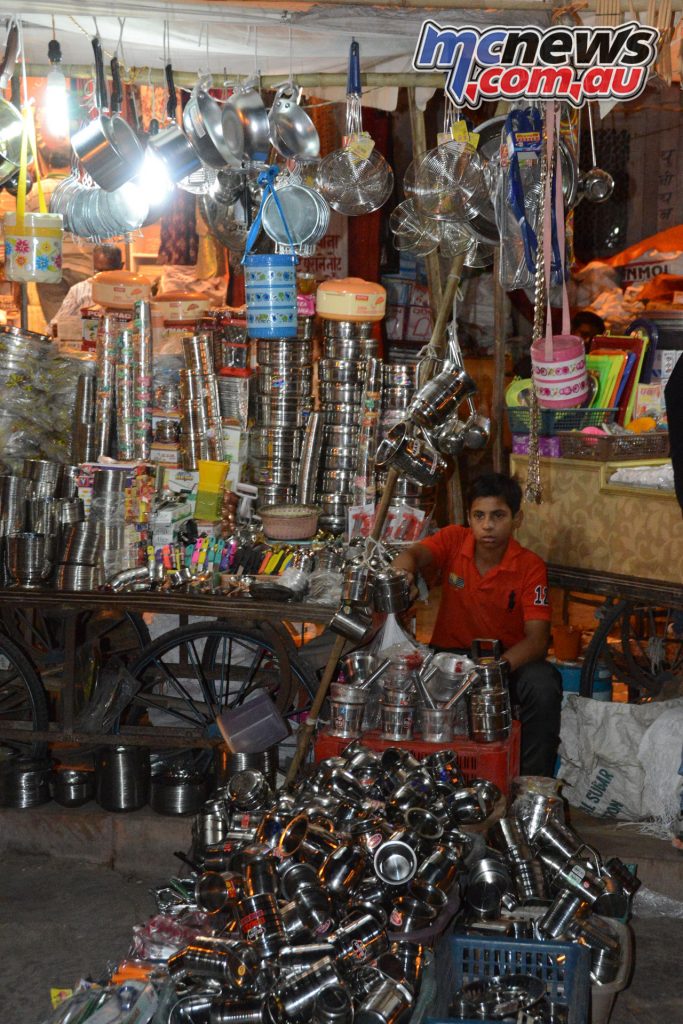
It was still cool when we stopped in Mirzapur for a cup of tea at the railway station and the road outside showed us the reason for the blackout. There must have been a storm the previous night, because a number of poles had come down and filled the streets with a tangle of wires.
We ordered the ‘Vegetable Preparation’, which is a selection of violently coloured pastes, presumably originally sourced from vegetables, in an aluminium TV dinner tray. It has little flavour beyond ha… ha… HOT!
We had a good road that day, still lined by mangos, which were inhabited by monkeys, and quite spectacular where it climbed the edge of the Deccan. Our host for the night was a retired lawyer-turned-spiritualist who now ran a hotel in Satna. He assured us that, wherever we went in the universe, we would always find people who spoke English. I guess a spiritualist ought to know.
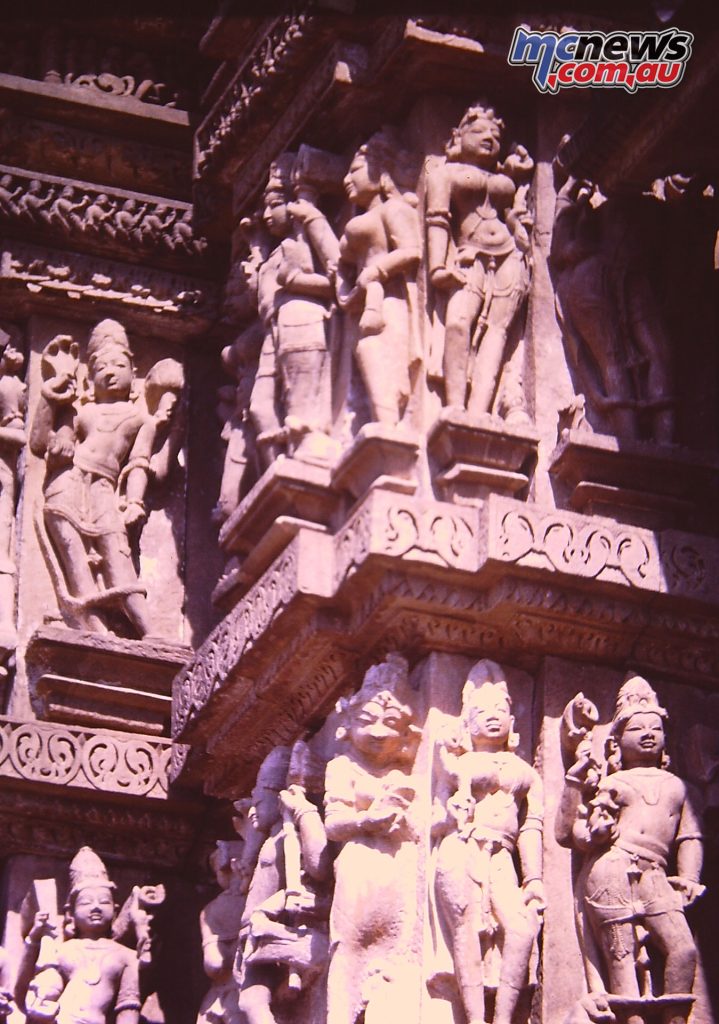
A look at the erotic carvings on the temples at Khajuraho, which are incidentally very good and actually quite erotic, was followed by our hottest day to date. We pulled in to the courtyard of an Irrigation Department rest house and tried to find out from the chowkidar—the caretaker—if we could stay the night there and get something to eat. No luck. Our recently acquired few words of Hindi didn’t seem to mean anything to him at all. What was the world coming to.
Lady Luck chose that moment to arrive in the shape of a short chap driving a locally made Fiat with a hang glider on top. He told us later that it was the only one in the country and he had brought it in under the pretext that it was a tent – substantial aircraft import duty would otherwise have been due on it. Tent duty, it seems is more reasonable.
It appeared that we had not been able to communicate with the chowkidar because he only spoke the local dialect. Our newfound friend then reached into his car, where the thermometer (in the shade) read 52 degrees C, and produced two bottles of beer in dry ice and wrapped in a back copy of the Times of India, which he invited us to share with him on the verandah.
The beer, that is. I could have kissed him. The bungalow, he explained, was not set up for meals. We thanked him for the beer and rode on to Jhansi. The heat, all the worse now we knew just how hot it was, was coming up off the road like laser fire.
Jhansi’s Central Hotel was pretty basic, with those dreadful short charpoys – beds made of timber and rope and designed for Indian not Australian bodies – but there was quite a good curry to be had downstairs and we were entertained by a wedding across the road. A lot of the wedding seemed to involve firecrackers.
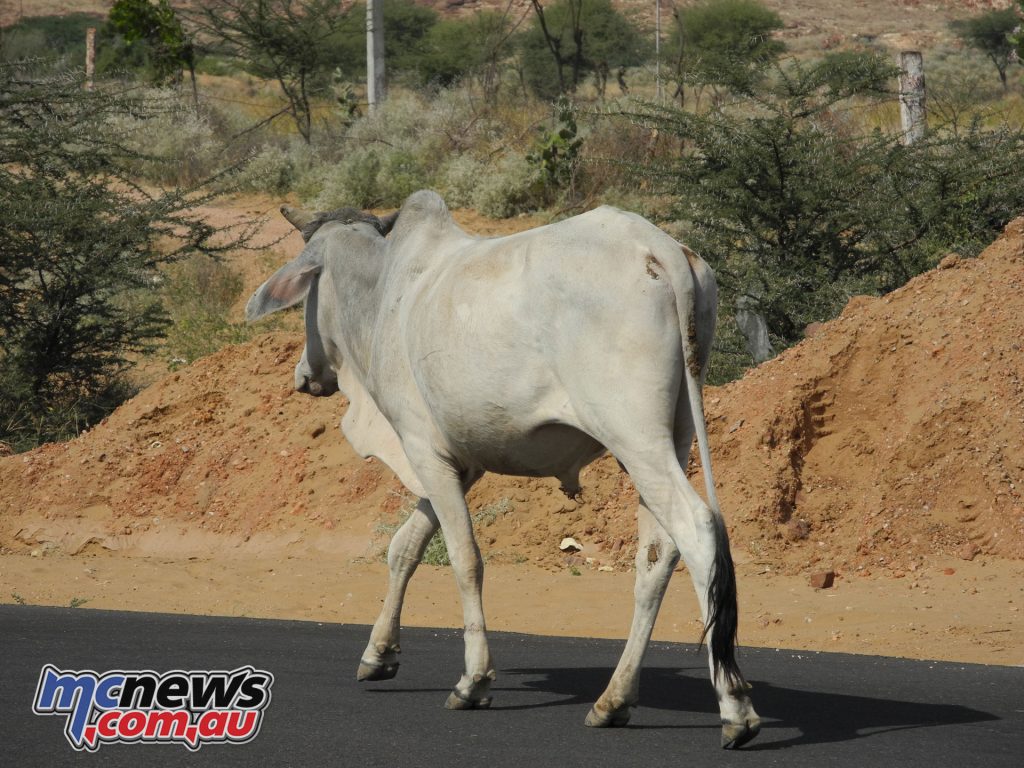
Next morning, road works gave us a bit of trouble on the way to Agra. A row of stones across the road can mean one of two things—either there used to be a broken-down truck there that’s been repaired and moved, or there’s a bridge out around the next corner. It’s not always easy to tell if the road ends dramatically a few yards farther on. We were also getting sore bums in the heat; XL seats are not comfortable at the very best of times and this was not one.
But the Taj Mahal took our minds off our worries. It is the only building I have ever seen that lives up to the tourist hype, and we were fortunate enough to have a full moon to see it by. There were fireflies in the gardens, too, and it was almost unbearably romantic. Charlie and I would gladly have exchanged each other for female company. Sadly, this was not to be.
We found lots of mail waiting for us in Delhi, but the money that should have been sitting at the bank had allegedly not arrived. I checked every day, and one day in the lift at the bank, an aristocratic-looking Indian gent looked me up and down, said hello and ascertained that I was Australian and then asked: ‘What is your purpose in life?’ I was still frantically trying to formulate a reply when we reached my floor and I beat a disorganised retreat.
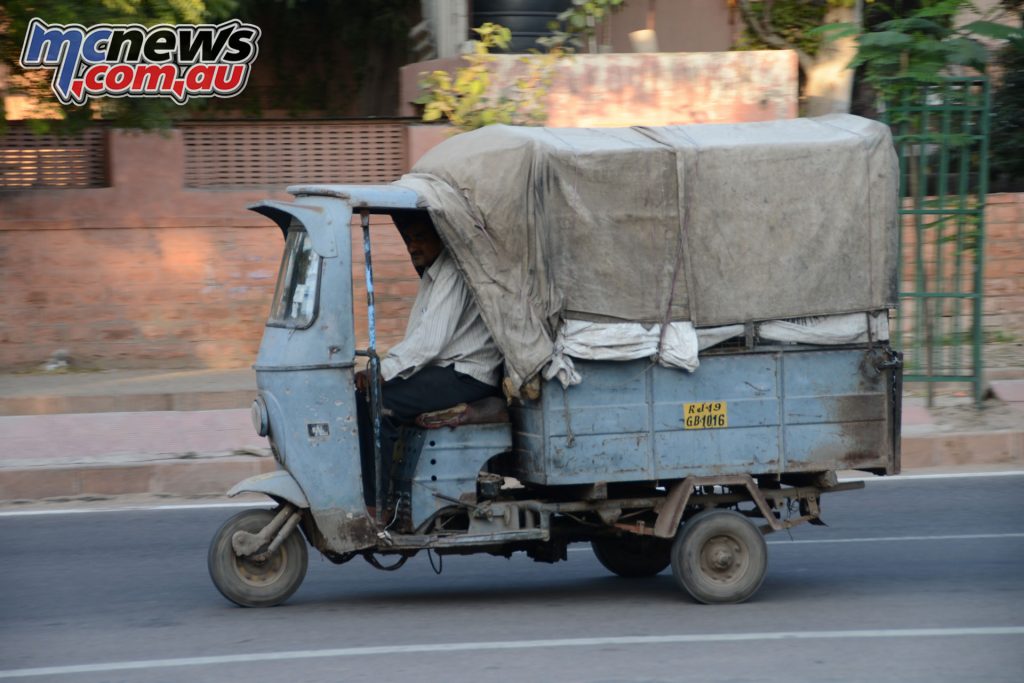
The Tourist Camp in Old Delhi looked rather more comfortable than most of the cheap hotels, so we pitched our flysheet there over a large bit of carpet donated by the manager. Charlie did a bit of maintenance work on the bikes, among other things replacing the rubber seal on one of the fork legs of my bike. It had been weeping oil and proved to be rather badly scored.
Visas were a headache. The Afghanis weren’t issuing any, having just had a revolution. The Iraqis wanted our passports for three months, to send to Baghdad for approval, so we decided to give them a miss. At least the Iranians only took two days.
Outside the Iranian Embassy we met Paul, a fellow biker and a Sikh from Chandigar who also intended to ride over to Europe. He invited us to come and stay with his family when we passed through Chandigar, and we gratefully accepted.
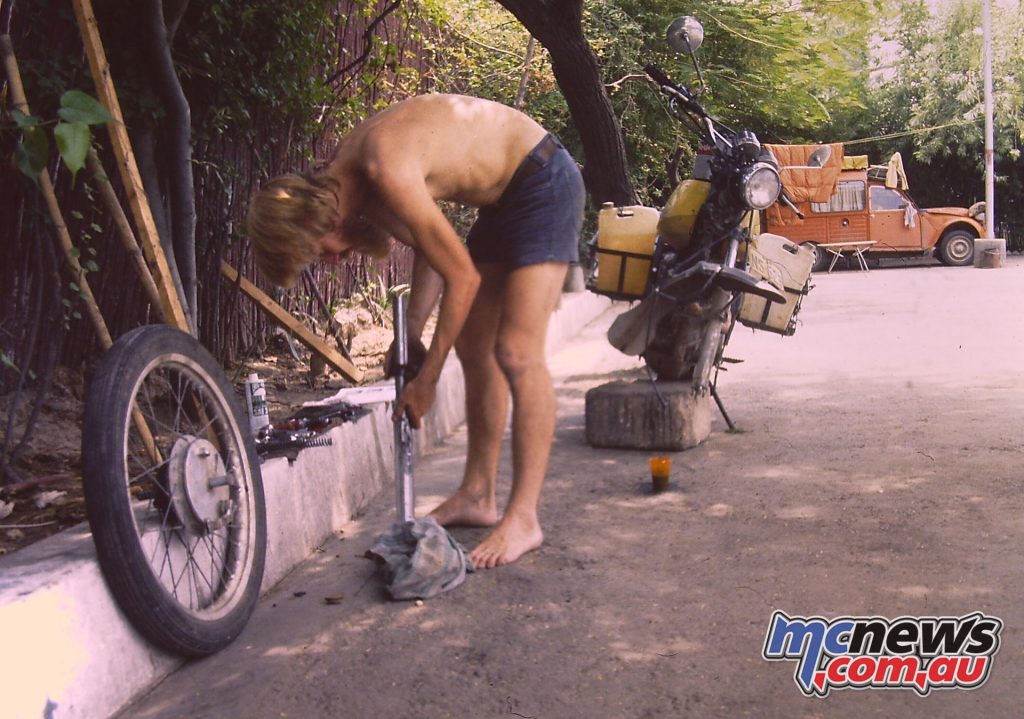
We had a lot of trouble with our money transfers to Delhi and waited for over a week. It was partly the fault of our bank back in Australia, but the Indians certainly weren’t overly organised.
After we had covered Delhi’s tourist attractions we whiled away the time in the US Information Service and British Council libraries which offered air conditioning and newspapers.
We also bought some sheepskins and made them into seat covers for the bikes. Our money came eventually; Charlie found the advice for his while glancing idly through one of the file folders in the bank. Like they say, if you want something done…
Crossing the bridge out of town over the Yamuna River was like riding through a suburb of hell. It was a closed, boxy steel affair and hot, claustrophobic, slippery with dung, and predictably enough it stank. The roads up to the foothills of the Himalayas weren’t much, either. We passed a totally flattened three-wheeler van lying in the ditch.
We were on our way up to Rishikesh, yet another holy town. Hardwar, at the entrance of the valley, looked interesting with its hundreds of little shops in booths lining the road, but Rishikesh itself was more like a Hindu Disneyland, complete with helicopter pads for the affluent gurus.
Down by the river we met one who was still working his way up. “I have only one disciple so far,” he said, “A Swiss man. But there will be more in time, do not fear.”
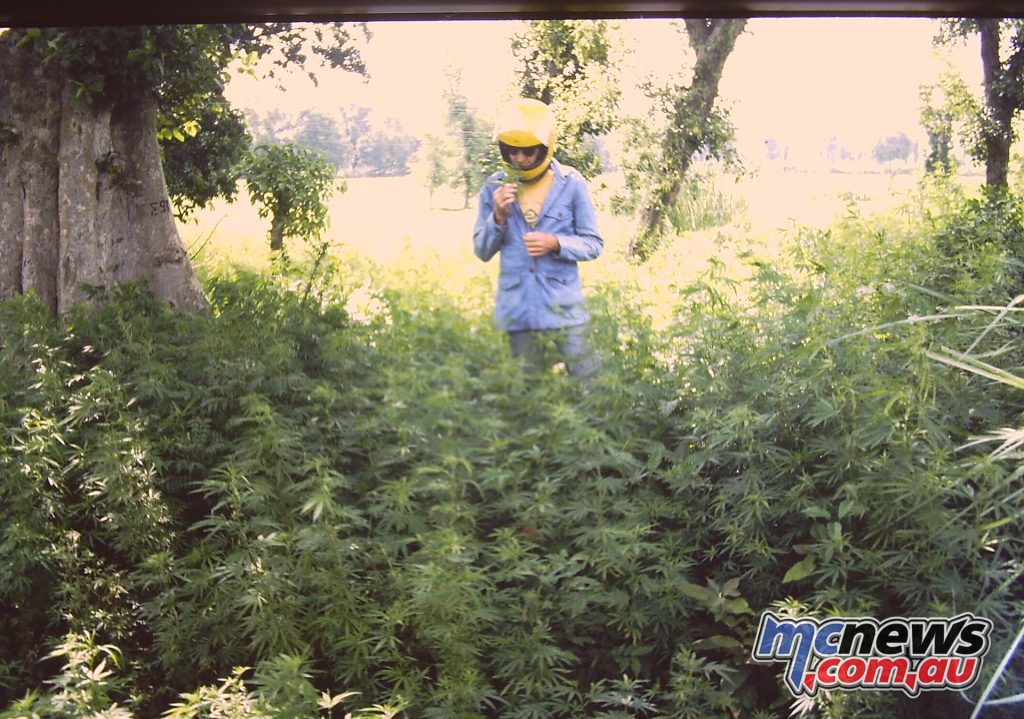
The road over to the old British hill station of Shimla was better. Lined by pine trees, it was chiseled into the sides of the hills. Every now and then the fog lifted and opened out spectacular views of hillsides and forest.
There were some river fords, too, crossed amid much white water, and very little traffic, a great relief after the crush down on the plains. For a while the road ran parallel to the Shimla railway, which looks like a big toy with its narrow gauge.
Next time we manage to score a full-on hot curry at a roadside stand and impress the locals.















